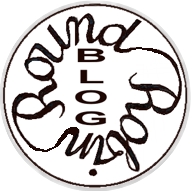 Topic: In what time period do you prefer to set your stories – past, present, or future? What are the problems and advantages of that choice? Would you like to change?
Topic: In what time period do you prefer to set your stories – past, present, or future? What are the problems and advantages of that choice? Would you like to change?
Unequivocally, I like to set my stories in the past. I do write short stories in the present, but I don’t remember ever having a go at the future.
THE PROBLEMS of writing in the past are two sides of the same coin, On the face of it is the problem created by not having been there. On the reverse is the problem created by having been there.

Dancing shoes with medals
Scottish Regency I wasn’t around in the latter years of George the Third’s reign and his son’s extended regency, but there is ample research material. Books, papers, art, furniture, the laws made, the laws enforced and, the real glory, the Georgian buildings still standing in many British cities. Edinburgh has its magnificent New Town and outriders like George Square where Bella’s Betrothal is set. I can look up the street directories and find out who lived in which house and what their occupation was. You can’t do that today!
One problem that creates difficulties for me in trying to woo some readers is the sheer cliff-face of the shift in attitudes since 1819. Some readers might be turned away by the strictures of life for a woman in that period. They may not wish or aren’t able to get into the mind-set. As a writer I love the challenge of working out how a woman would have made the best of it and, in the case of one’s heroine, bested the hero, her papa, the local lothario…
 Midlothian 1950s
Midlothian 1950s
I was there and many, many of the thousands of folk who read my debut serial in The People’s Friend last year, A Traveller’s Life, were also there. Memory is a tricksy business. The facts may well be indisputable, but their interpretation most certainly is not. I have two friends from my early schooling who grew up in the village I did and the neighbouring one. Consulting them helped enormously because the sister of one not only remembered the nature of the District Nurse’s uniform and the blue lamp at her gate, but also her name. Another friend had worked as a District Nurse and provided me with the wonderful insight: “And you kept your hat on – no matter the procedure being undertaken.” A little thing, but annoying to the many wonderful ladies (I think that’s right, only women) who undertook such essential work, if you get it wrong.
ADVANTAGES
For me, the principle advantage of writing in the past is perspective. As a writer of fiction I do have a ViewPoint character and the story will be skewed to show that person’s perspective. Writing years after the type of event in the story allows me to have read and thought about what might have happened in those circumstances and what might have provoked it or even resolved it. I may have to give a particular VP, but I can at least allow the others to break the surface of memory’s pool.
WOULD I LIKE TO CHANGE
Maybe. I do have one or two stories I want to tell in the present rather than through the lens of the past. It is, however, very difficult when living amidst the glories of Edinburgh’s New Town and visiting on a fairly frequent basis the wonderful sweeps of London’s great Georgian streets and their magnificent parks, to drag myself into our world of ‘normal’.
WORK IN PROGRESS
It’s a mixture. I’ve got a Scottish Regency on the go having been primed by writing a short story for Capital Writers (more on another occasion). I have a scatty heroine and a set of loveable rogues poised on the threshold of adult responsibility. I’m also, the Fiction Editor mentioned it in her blog two weeks ago, writing a contemporary serial for People’s Friend.
If you want to read others’ views on this month’s topic, here’s the list of great participants:
Marie Laval http://marielaval.blogspot.co.uk/
Anne de Gruchy https://annedegruchy.co.uk/category/blog/
Skye Taylor http://www.skye-writer.com/blogging_by_the_sea
Dr. Bob Rich http://wp.me/p3Xihq-14G
Anne Stenhouse https://annestenhousenovelist.wordpress.com/
A.J. Maguire http://ajmaguire.wordpress.com/
Judith Copek http://lynx-sis.blogspot.com/
Victoria Chatham http://www.victoriachatham.com
Beverley Bateman http://beverleybateman.blogspot.ca/
Heidi M. Thomas http://heidiwriter.wordpress.com/
Marci Baun http://www.marcibaun.com/blog/
Helena Fairfax http://www.helenafairfax.com/blog
Diane Bator http://dbator.blogspot.ca/
Rhobin L Courtright http://www.rhobinleecourtright.com



